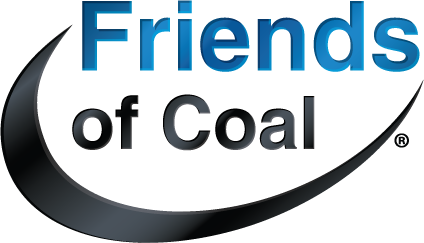Coal Leaders Discuss Cap-and-Trade, EPA Concerns
- Details
Chris Hamilton and Michael Carey warn that pending federal "cap-and-trade" legislation and increased U.S. Environmental Protection Agency intervention will cripple the coal industry.
Hamilton, president of the West Virginia Coal Association, and Carey, president of the Ohio Coal Association, brought their concerns to Wheeling Tuesday during a Wheeling Area Chamber of Commerce Business/Coal Forum Luncheon at WesBanco Arena, where Wheeling Mayor Andy Mckenzie and chamber President Terry Sterling welcomed attendees. Hamilton focused much of his attention on what he called "the EPA's assault on coal and war on mountaintop mining."
Hamilton said mountaintop mining - also known as surface mining - is under fire because environmentalists and other industry opponents contend that such mining destroys the landscape and natural water flow.
"They show pictures of active mining sites but not of the finished, and reclaimed, land when the work is completed," he said.
During his presentation, Hamilton showed several before and after pictures of sites around the state where mountaintop mining had been done.
Hamilton said mountaintop mining yields nearly 50 percent of West Virginia's annual coal output.
Another area of concern to Hamilton is the EPA's practice of delaying mining permits for surface mining or applying new mandates to previously approved permits.
"There is a large percentage of our state's coal production and mining jobs that are being threatened today by the collective nature of these threats," he said.
He said everybody in the Northern Panhandle of West Virginia, Eastern Ohio or Western Pennsylvania should beware and become more willing to express their concerns to elected officials.
Carey said cap-and-trade legislation currently moving through the U.S. Senate stands to destroy the coal industry.
The bill calls for electric utility companies to reduce carbon dioxide emissions by 20 percent within the next 10 years.
"It is a bad bill," he said. "Essentially, it will put 80 percent of coal production out of commission by 2030. Cap-and-trade is bad for America and bad for our region."
West Virginia Sen. Jeff Kessler, who also is an expected candidate for governor in 2012, told the gathering that within the next 20 years, there is no viable energy alternative for the country other than coal.
"We can reduce our dependence on foreign oil and increase the supply of energy for West Virginia and the country," said Kessler, D-Marshall. "Our challenge is to do it safely and cleanly and in a responsible manner. We can get it done and meet those objectives."
Kessler pointed to American Electric Power's Kammer-Mitchell plant south of Moundsville, where millions of dollars have been spent on emissions controls and reclamation of byproducts for use at the nearby CertainTeed gypsum wallboard plant.
"We have proven that it can be done," he said.






